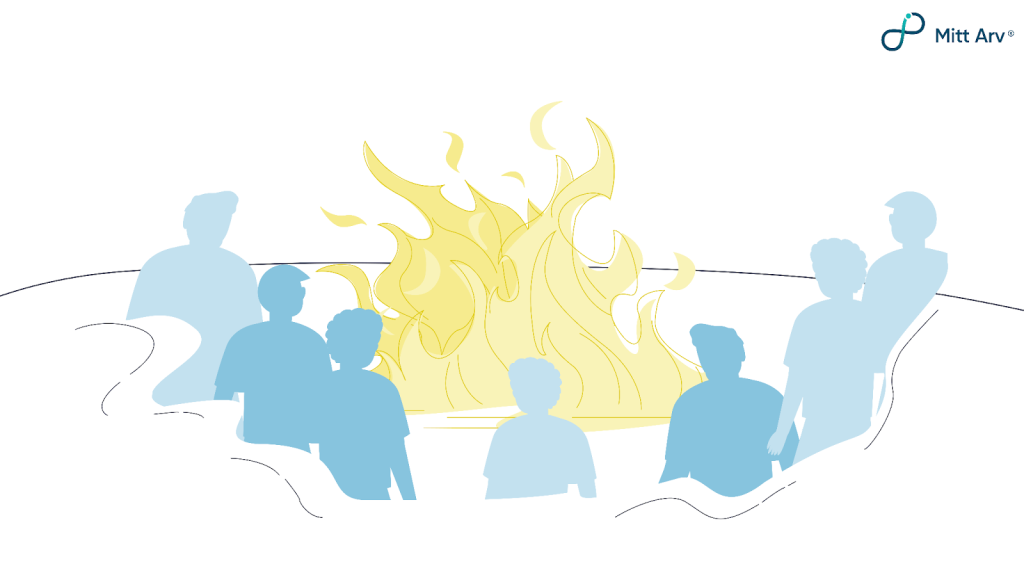
Introduction
Saying a final goodbye is never easy, but for Non-Resident Indians (NRIs), it comes with even greater challenges. Indian funerals overseas have legal complexities, cultural barriers, and difficulties in performing traditional rites, making funerals further overwhelming. On top of that, the cost can exceed $10,000, turning grief into financial stress. NRI Funerals dealing with loss often face unfamiliar systems and tough decisions, making an already difficult time even harder.
In this blog, we’ll explore the struggles of NRI funerals and how they find the strength to overcome them.
Preserving Traditions Overseas: Open Pyres and Burials

When it comes to funeral traditions, Indians who follow Hinduism and Sikhism practice open pyres (the process of turning the body into ash). They first place the body on a wooden ‘Chita,’ that is usually put on fire at a Gurudwara or at home for Sikhs, and a pyre site for Hindus. The location of the pyre site historically faces the river Ganges.
The open pyre custom may face issues in other countries for environmental concerns. It is important to remember that they are not allowed under many foreign laws, and as a result, Hindu and Sikh NRIs face major hurdles.
Those who follow Islam perform burial of the deceased. Muslims cover the deceased in a white cloth called “Kafan.” They also perform their traditional prayer called “Salat-al-Janazah.” Indian Muslims living overseas have difficulty finding burial places as costs continue to rise for burial sites. This puts many Indian Muslims under stress when arranging for funeral ceremonies.
Learn more about Muslim Funeral Traditions and etiquette.
Rising Costs and Regulations of Indian Funerals Overseas

Due to environmental rules and regulations, open-air pyres are heavily restricted. However, in the landmark case of Davendra Ghai, the UK courts granted his petition to perform an open-air pyre. For many, legal battles aren’t an option. High costs and long wait times make it difficult to get permission for open pyres.
When it comes to burial grounds, NRIs face affordability problems. For example, New York has over a million Muslims but no ‘Muslim-only’ cemetery. Some cemeteries offer Muslim burial plots, but after the pandemic, prices skyrocketed. For example, Washington Memorial Park Cemetery offers Muslim graves for $9,500. Buyers can make a 10%, 20%, or 30% down payment and pay the rest over 84 months.
Limited Availability of Indian-Specific Funeral Services
Indians believe that funerals should take place within a day, as per the traditions of Indian faiths, which emphasize performing last rites soon after death. In contrast, Western countries often preserve the body, leading to delayed funerals, a practice that differs from Indian customs.
The search for funeral places that adhere to Indian customs is a struggle abroad. The number of Indian-specific funeral sites remains limited. As a result, finding a suitable funeral site becomes both challenging and costly. In areas with fewer NRIs, families struggle to find funeral homes that can provide such services.
Legal restrictions and the rising cost of burial grounds make things even harder. Plus, many funeral providers are unfamiliar with NRI traditions, adding to the emotional stress.
Social and Emotional Challenges of Mourning Abroad
Apart from the challenges mentioned above, For NRIs, mourning can be even harder. In India, funerals bring family and friends together, offering comfort and support during grief.
However, in Western countries, NRIs often live in nuclear families. Their busy lives can make grieving feel isolating. There is an absence of close relatives and gatherings in the community. The absence of traditional grieving rituals might make the loss even more difficult to endure. Some NRI families find it challenging to balance their traditions with the customs of their host country, leading to an internal conflict between staying true to their roots and adapting to new norms.
See Also: What to do when Death Comes?
How have Indians preserved their traditions?

Despite the challenges, NRIs continue to honor Indian funeral traditions while following local laws. To keep the communal spirit of mourning alive, many families use virtual platforms, allowing relatives in India to join ceremonies and stay connected, even from afar.
Additionally, many Indian communities have formed support groups and organizations. They assist each other in times of NRI funerals and arrangements abroad. Such groups advise families on legal procedures, connect them with appropriate service providers, and offer emotional support during the period of mourning.
Modern cremation sites are a practical choice for Hindu and Sikh families, but they often lack key traditional elements. For example, instead of using a sacred fire, these sites rely on electricity. The ashes of the closed ones can be sent to India to perform immersion of ashes in holy rivers. Muslim communities who face pricing issues prefer to go to other locations with more affordability. This provides accessibility while satisfying the need for a burial ground.
Conclusion
Arranging Indian funerals overseas presents several challenges from legal restrictions and cultural barriers to financial and emotional difficulties. Yet, through adaptation and each other’s support, NRIs continue to honour their loved ones and their traditions.
While the methods may evolve, the fundamental values of respect remain the same. Though living far from their homeland, Indians abroad honour their loved ones in death with the same dignity, love, and respect their traditions uphold.